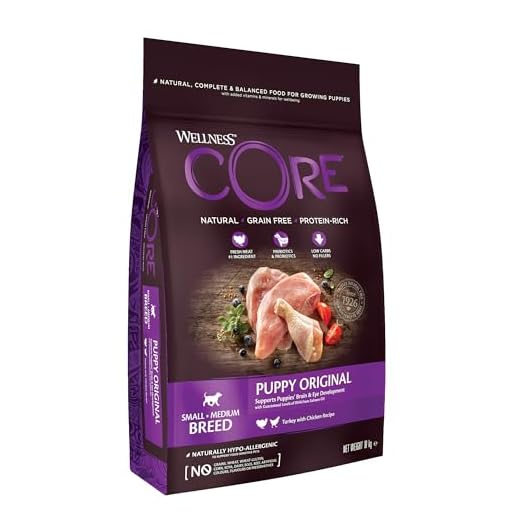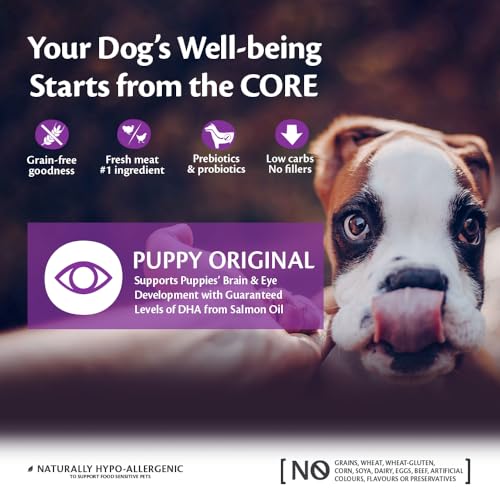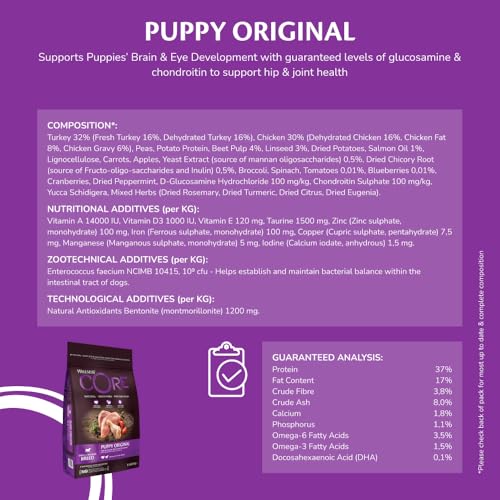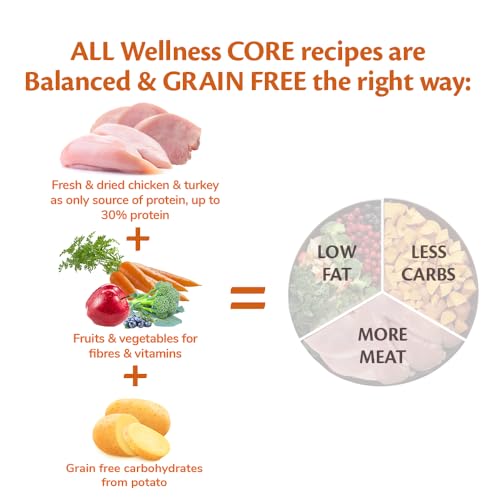




Choosing the right dog food for your Chihuahua puppy is crucial to ensure their growth and health. As a proud owner of a Chihuahua puppy myself, I understand how overwhelming it can be to sift through countless options on the market. With their tiny size and unique nutritional needs, finding the perfect balance of nutrients is essential to support their development and maintain their well-being.
When I first brought my Chihuahua puppy home, I was bombarded with advice and recommendations, each claiming to be the best. It soon became clear that not all dog foods are created equal, and what works for one breed may not be suitable for another. Chihuahuas, with their small stature and fast metabolisms, require a diet specifically tailored to meet their high energy demands and support their delicate digestive systems.
In this article, I’ll share my journey of discovering the best dog food for Chihuahua puppies, from understanding the critical nutrients they need to identifying high-quality brands that cater to their specific requirements. By the end, you’ll have a comprehensive understanding of what to look for in dog food, ensuring your little companion thrives and grows into a healthy adult dog.
Why Choosing the Right Food for Chihuahua Puppies is Crucial
When I first brought my Chihuahua puppy home, I was overwhelmed with the numerous choices of dog food available. However, I quickly realised that selecting the appropriate diet for my tiny companion wasn’t just about picking any commercial dog food. It’s about ensuring their optimal growth, health, and overall well-being.
Chihuahua puppies have unique nutritional needs due to their small size and rapid growth rate. Their tiny stomachs mean they need food that’s nutrient-dense to support their energy levels and development. Feeding them the right diet can make a significant difference in their bone health, coat quality, and immune system function.
Essential Nutrients for Chihuahua Puppies
Choosing the right food means understanding the essential nutrients that Chihuahua puppies require. A balanced diet should include:
- Protein: Critical for muscle development and overall growth. Look for high-quality protein sources like chicken, fish, or lamb.
- Fats: Necessary for energy and maintaining healthy skin and coat. Ensure the food contains healthy fats, such as omega-3 and omega-6 fatty acids.
- Carbohydrates: Provide the necessary energy for their active lifestyle. Opt for complex carbohydrates like sweet potatoes and brown rice.
- Vitamins and Minerals: Vital for immune support and bone health. Check that the food includes essential vitamins like A, D, and E, and minerals such as calcium and phosphorus.
Feeding your Chihuahua puppy the correct diet can prevent various health issues that small breeds are prone to, such as hypoglycaemia, dental problems, and obesity. Puppies that receive proper nutrition are more likely to grow into healthy adults with fewer medical concerns.
Another aspect to consider is the kibble size. Chihuahua puppies have tiny mouths, so it’s important to choose food with small, bite-sized pieces to make eating easier and to prevent choking.
In summary, investing time in selecting the right food for your Chihuahua puppy is crucial. It’s not just about meeting their immediate hunger needs but ensuring they have the best start in life, which can lead to a happier, healthier dog in the long run.
Essential Nutrients for Feeding Chihuahua Puppies
When I first brought home my Chihuahua puppy, I wanted to ensure he had the best start in life. Finding the right food was a priority because good nutrition is key to his growth and health. I learned that Chihuahua puppies have specific dietary needs, given their tiny size and energetic nature.
Choosing the right food involves understanding the essential nutrients that support their development. Here’s what I discovered about the vital components that should be present in their diet.
Key Nutrients for Chihuahua Puppies
High-quality protein is crucial for Chihuahua puppies. Their small bodies require protein to build strong muscles and support overall growth. Look for food where the primary ingredient is a high-quality animal protein like chicken, turkey, or lamb. This ensures they receive the necessary amino acids for healthy development.
Healthy fats are another important element. They provide a concentrated source of energy, which is essential for these active little dogs. Omega-3 and omega-6 fatty acids, found in ingredients like fish oil and flaxseed, support brain development, a shiny coat, and healthy skin.
- Carbohydrates: While dogs don’t require carbohydrates in the same way humans do, they are still an important energy source. Opt for complex carbs like sweet potatoes and brown rice, which offer sustained energy and aid in digestion.
- Vitamins and Minerals: These are vital for overall health. Vitamin E supports the immune system, while calcium and phosphorus are crucial for developing strong bones and teeth.
- Fibre: Essential for a healthy digestive system, fibre helps prevent constipation and supports overall gut health. Ingredients like pumpkin and beet pulp are excellent sources of fibre.
Finally, it’s important to choose a food specifically formulated for puppies. Puppy food has a higher calorie content and the right balance of nutrients to support rapid growth and development. Always check the label to ensure it meets the nutritional levels established by the AAFCO Dog Food Nutrient Profiles for growth.
By focusing on these key nutrients, I feel confident that I’m giving my Chihuahua puppy the best possible start in life, ensuring he grows up healthy and strong.
Dry vs Wet Food: Which is Better for Chihuahua Puppies?
When deciding on the right type of food for Chihuahua puppies, one often faces the choice between dry kibble and wet food. Both options have their advantages and potential drawbacks, and the best choice often depends on the specific needs and preferences of your puppy. In this discussion, I’ll share my insights on the key differences between dry and wet food for Chihuahua puppies.
Dry food, or kibble, is known for its convenience and cost-effectiveness. It’s easy to store, doesn’t spoil quickly, and is typically more affordable compared to wet food. Additionally, the crunchy texture of kibble can help maintain dental health by reducing tartar buildup. However, it’s crucial to ensure that the kibble size is appropriate for Chihuahua puppies’ small mouths and that it contains high-quality ingredients to meet their nutritional needs.
Advantages and Disadvantages of Dry Food
- Convenience: Dry food is simple to measure, store, and serve, making it a popular choice for busy pet owners.
- Dental Health: The abrasive texture of kibble can aid in keeping your puppy’s teeth clean and gums healthy.
- Cost-Effective: Generally, dry food is less expensive, offering a budget-friendly option for long-term feeding.
- Potential Drawbacks: Dry food can be less palatable and may lack the moisture content necessary for optimal hydration, particularly for puppies who drink little water.
Advantages and Disadvantages of Wet Food
- Hydration: Wet food has a high moisture content, which helps keep Chihuahua puppies hydrated, especially important for their overall health.
- Palatability: The rich aroma and texture of wet food make it more appealing to picky eaters, ensuring they get the nutrients they need.
- Nutrient Density: Often, wet food contains higher amounts of protein and fats, which are crucial for the growth and energy levels of Chihuahua puppies.
- Potential Drawbacks: Wet food is usually more expensive, has a shorter shelf life once opened, and can lead to dental issues if not balanced with proper dental care.
Ultimately, the choice between dry and wet food for Chihuahua puppies should be based on individual needs, dietary requirements, and lifestyle. Many pet owners find that a combination of both can offer a balanced diet, providing the benefits of each type while mitigating their downsides. Consulting with a veterinarian can also provide tailored advice to ensure your Chihuahua puppy thrives on the diet you choose.
Grain-Free Dog Food for Chihuahua Puppies: Pros and Cons
Choosing the right diet for Chihuahua puppies can be a challenging task. As these tiny pups have specific nutritional needs, many pet owners consider grain-free options. These diets exclude ingredients like wheat, corn, and rice, which are common in traditional dog foods. However, it’s crucial to weigh the benefits and drawbacks before making a decision.
In this discussion, I’ll explore the advantages and disadvantages of grain-free dog food for Chihuahua puppies. By understanding these points, you’ll be better equipped to decide whether this type of diet is suitable for your furry friend.
Benefits of Grain-Free Dog Food
- Improved Digestion: Many Chihuahua puppies have sensitive stomachs, and grains can sometimes cause digestive issues. Grain-free formulas often use alternative carbohydrates like sweet potatoes or peas, which can be easier for puppies to digest.
- Reduced Allergies: Some puppies may develop food allergies or intolerances to grains. Switching to a grain-free diet can alleviate symptoms such as itching, skin rashes, and gastrointestinal distress.
- Higher Protein Content: Grain-free dog foods typically have a higher protein content, which is essential for the growth and development of Chihuahua puppies. This can help support muscle development and overall health.
Drawbacks of Grain-Free Dog Food
- Cost: Grain-free dog foods tend to be more expensive than their grain-inclusive counterparts. This higher cost can be a significant factor for pet owners on a budget.
- Nutritional Balance: While grain-free foods can be beneficial, it’s crucial to ensure they provide a balanced diet. Some grain-free options may lack essential nutrients that puppies need for optimal health.
- Potential Health Risks: There have been concerns about a possible link between grain-free diets and certain heart conditions, such as dilated cardiomyopathy (DCM). It’s essential to consult with a veterinarian before making any significant dietary changes.
Ultimately, the decision to feed your Chihuahua puppy a grain-free diet should be based on their specific needs and any health concerns they may have. Consulting with a veterinarian can provide personalised guidance and ensure that your puppy receives the best possible nutrition. Balancing the benefits and potential risks will help you make an informed choice for your beloved pet.
Top 5 Recommended Dog Food Brands for Chihuahua Puppies
Choosing the right food for your Chihuahua puppy can be a daunting task. These tiny pups have specific dietary needs to support their growth and health. I have researched extensively and compiled a list of five exceptional dog food brands that cater specifically to Chihuahua puppies.
Each of these brands is known for their high-quality ingredients, nutritional balance, and positive impact on the overall well-being of small breed puppies. Here is a detailed look at these recommended brands to help you make an informed decision for your furry friend.
Recommended Dog Food Brands for Chihuahua Puppies
-
Royal Canin Chihuahua Puppy
This brand is specifically formulated for Chihuahua puppies, ensuring they get the right balance of nutrients. The kibble size is designed for their small mouths, making it easy to chew and digest. Royal Canin includes a blend of antioxidants and prebiotics to support a healthy immune system and digestion.
-
Hill’s Science Diet Small Paws Puppy
Hill’s Science Diet is renowned for its scientific approach to pet nutrition. Their Small Paws Puppy formula is enriched with DHA from fish oil for brain and eye development, high-quality protein for muscle growth, and a balanced set of minerals for strong bones and teeth.
-
Blue Buffalo Life Protection Small Breed Puppy
Blue Buffalo offers a holistic approach to puppy nutrition. Their Life Protection formula for small breeds includes deboned chicken, whole grains, and garden veggies and fruit. This recipe also features Blue Buffalo’s exclusive LifeSource Bits, a precise blend of vitamins, minerals, and antioxidants chosen by veterinarians and animal nutritionists.
-
Wellness Complete Health Small Breed Puppy
Wellness Complete Health focuses on delivering a balanced diet with high-quality ingredients. Their small breed puppy formula includes deboned turkey, oatmeal, and salmon meal, providing a rich source of protein and essential nutrients. Additionally, it is fortified with DHA for brain development and antioxidants for immune support.
-
Nutro Wholesome Essentials Small Breed Puppy
Nutro Wholesome Essentials offers a small breed puppy formula that uses farm-raised chicken as its primary ingredient. It provides natural sources of glucosamine and chondroitin for joint health, along with omega-3 fatty acids for cognitive development. This recipe is free from GMO ingredients, corn, wheat, and soy, ensuring a clean diet for your puppy.
Homemade Dog Food Recipes for Chihuahua Puppies
Creating homemade meals for Chihuahua puppies can be a rewarding experience, ensuring they receive the right nutrients for their growth and development. Unlike commercial pet food, homemade recipes give you control over the ingredients, allowing you to cater specifically to your puppy’s dietary needs and preferences.
Before diving into cooking, it’s crucial to consult with a veterinarian to determine the specific nutritional requirements for your Chihuahua puppy. Their tiny size and unique metabolism mean they need a diet rich in protein, healthy fats, and essential vitamins. With the right guidance, you can prepare delicious and nutritious meals that will keep your puppy healthy and happy.
Simple and Nutritious Recipes
Here are a few straightforward and balanced recipes to get you started:
Chicken and Rice Delight
- 1 cup of cooked chicken breast, shredded
- 1/2 cup of cooked brown rice
- 1/4 cup of finely chopped carrots
- 1/4 cup of peas
- 1 tablespoon of fish oil (for Omega-3 fatty acids)
Mix all ingredients thoroughly and serve. This meal provides a good balance of protein, carbohydrates, and vegetables.
Beef and Sweet Potato Feast
- 1 cup of lean ground beef, cooked
- 1/2 cup of mashed sweet potatoes
- 1/4 cup of green beans, chopped
- 1/4 cup of apple, finely diced (ensure no seeds or core)
- 1 teaspoon of olive oil
Combine all ingredients and mix well. This recipe offers a mix of protein, fibre, and healthy fats.
Fish and Quinoa Medley
- 1 cup of cooked fish (such as salmon or white fish), flaked
- 1/2 cup of cooked quinoa
- 1/4 cup of spinach, finely chopped
- 1/4 cup of pumpkin puree
- 1 teaspoon of coconut oil
Blend all components together. This dish is rich in Omega-3 fatty acids and essential minerals.
When preparing homemade food, it’s important to avoid certain ingredients that can be harmful to dogs, such as onions, garlic, chocolate, and artificial sweeteners. Always ensure that the meals are served at a safe temperature and stored properly.
By dedicating a little time and effort, you can create wholesome meals that cater to the specific needs of your Chihuahua puppy, promoting their health and well-being from the very start.
Feeding Schedule and Portion Sizes for Chihuahua Puppies
As a proud owner of a Chihuahua puppy, it’s essential to establish a consistent feeding routine to ensure their healthy growth and development. Given their tiny size, Chihuahuas have specific dietary needs that require careful attention to both the timing and the quantity of their meals.
In my experience, setting a regular feeding schedule is crucial. Chihuahua puppies have small stomachs and high metabolisms, meaning they need to eat more frequently than adult dogs. I recommend feeding them three to four times a day until they reach six months of age. This frequent feeding helps to maintain their energy levels and supports their rapid growth during these early months.
Determining the Right Portion Sizes
When it comes to portion sizes, it’s important not to overfeed or underfeed your Chihuahua puppy. Overfeeding can lead to obesity and related health issues, while underfeeding can result in malnutrition and stunted growth. To determine the appropriate portion sizes, consider the following factors:
- Age: Younger puppies require smaller, more frequent meals.
- Weight: Monitor your puppy’s weight to adjust food quantities as needed.
- Activity level: More active puppies may need slightly more food to fuel their energy.
- Type of food: The caloric content of the food brand you choose will affect portion size recommendations.
As a guideline, I usually follow the recommendations on the dog food packaging, which are generally based on the puppy’s weight. For example, a Chihuahua puppy weighing between 1 to 3 pounds might need approximately 1/4 to 1/2 cup of high-quality dry puppy food per day, divided into several meals. Always adjust portions according to your puppy’s individual needs and consult with your vet for personalised advice.
Keeping track of your puppy’s eating habits and growth is essential. Regular vet check-ups will help ensure that your Chihuahua is on the right track, and your vet can provide guidance if any adjustments to the feeding schedule or portion sizes are needed.
Understanding Common Food Allergies in Chihuahua Puppies
As a Chihuahua puppy owner, it’s crucial to be aware of potential food allergies that may affect your furry companion’s health and wellbeing. Despite their tiny size, Chihuahuas can be prone to various allergies, which can manifest through symptoms like itching, gastrointestinal upset, and skin irritation.
One prevalent food allergen for Chihuahua puppies is grains, particularly wheat and corn. These ingredients are commonly found in commercial dog foods and may trigger allergic reactions in sensitive pups. To avoid these issues, opt for grain-free formulas that utilize alternative carbohydrate sources such as sweet potatoes or peas.
Another culprit for food allergies in Chihuahuas is poultry, including chicken and turkey. While poultry is a rich source of protein, some Chihuahuas may develop sensitivities to these meats, leading to digestive problems or skin issues. Consider switching to dog foods containing novel protein sources like fish or venison to mitigate the risk of allergic reactions.
Additionally, dairy products like milk and cheese can pose a challenge for Chihuahua puppies with lactose intolerance. These dairy ingredients may result in gastrointestinal discomfort, including diarrhea and vomiting. It’s advisable to select dairy-free dog foods or treats specifically formulated for lactose-sensitive pups to prevent adverse reactions.
Moreover, some Chihuahuas may exhibit allergies to specific fruits and vegetables commonly found in dog foods, such as soy and tomatoes. These ingredients can cause allergic responses ranging from mild itching to severe digestive issues. When choosing dog food, carefully read the ingredient list and opt for formulas free from potential allergens to safeguard your Chihuahua puppy’s health.
By understanding and avoiding common food allergens, you can ensure that your Chihuahua puppy enjoys a diet that promotes optimal health and minimizes the risk of allergic reactions.
Transitioning Chihuahua Puppies to Adult Dog Food
When it comes to transitioning your Chihuahua puppies to adult dog food, a gradual approach is key for their digestive health and overall well-being. Rushing the process can lead to stomach upset and reluctance to eat. Here’s how I’ve successfully managed this transition:
Firstly, I start by mixing a small amount of the new adult dog food with their current puppy formula. This allows them to become accustomed to the new taste and texture without overwhelming their system. Over the course of about a week, I gradually increase the ratio of adult food to puppy food until they are solely eating the new formula.
Throughout the transition, I keep a close eye on their stools and appetite. If I notice any signs of digestive upset, such as loose stools or decreased interest in food, I adjust the transition pace accordingly, slowing it down if necessary. Patience is key during this process to ensure their comfort and acceptance of the new food.
Additionally, I make sure to provide plenty of fresh water during the transition period to help aid digestion and keep them hydrated. Consistency in feeding times and portions also helps in establishing a routine and reducing any stress associated with the change.
Frequently Asked Questions About Feeding Chihuahua Puppies
Feeding your Chihuahua puppy properly is essential for their health and growth. Here are some common questions about feeding Chihuahua puppies:
1. How often should I feed my Chihuahua puppy?
Answer: Chihuahua puppies have small stomachs and high metabolisms, so they typically need to eat small, frequent meals. Aim to feed your Chihuahua puppy 3 to 4 times a day, dividing their daily portion into smaller meals.
2. What type of food is best for Chihuahua puppies?
Answer: High-quality, nutritionally balanced puppy food specifically formulated for small breeds like Chihuahuas is ideal. Look for options that contain real meat as the first ingredient and avoid fillers and artificial additives.
3. Can I feed my Chihuahua puppy human food?
Answer: While occasional small amounts of certain human foods can be safe for Chihuahua puppies, it’s important to avoid feeding them anything that could be harmful. Stick to a balanced puppy diet recommended by your veterinarian to ensure they get all the nutrients they need.
4. How much should I feed my Chihuahua puppy?
Answer: The amount of food your Chihuahua puppy needs depends on factors like their age, size, and activity level. Follow the feeding guidelines on the puppy food packaging as a starting point, and adjust based on your puppy’s individual needs and any guidance from your veterinarian.
5. When should I transition my Chihuahua puppy to adult dog food?
Answer: Chihuahua puppies generally need to be fed puppy food until they reach about 9 to 12 months of age. However, smaller breeds like Chihuahuas may reach maturity sooner, so consult with your veterinarian for the best time to transition to adult dog food.
Conclusion
Feeding your Chihuahua puppy a balanced diet is crucial for their health and wellbeing. By choosing the right puppy food, feeding them appropriately sized meals throughout the day, and monitoring their growth and development, you can help your Chihuahua puppy grow into a happy and healthy adult dog.
Best Dog Food For Chihuahua Puppies
Features
| Part Number | SF7.5PUPPY |
| Model | SF7.5PUPPY |
| Color | Brown |
| Size | 7.5 kg (Pack of 1) |
| Language | English |
Features
| Part Number | 10773 |
| Model | 10773 |
| Size | 10kg |
| Language | French |
Features
| Part Number | DPC75 |
| Model | DPC7.5 |
| Color | Fresh Chicken |
| Release Date | 2019-01-01T00:00:01Z |
| Size | 7.5 kg (Pack of 1) |
| Price history for Scrumbles Natural Gluten-Free Dog Food | |
|---|---|
|
Latest updates:
|
|
Features
| Part Number | 500002 |
| Model | 500002 |
| Release Date | 2019-12-23T00:00:01Z |
| Size | 14 kg (Pack of 1) |
Features
| Part Number | 02LJA5 |
| Model | 02LJA5 |
| Size | 12 kg (Pack of 1) |
| Language | English |
Q&A:
What is the best dog food for Chihuahua puppies?
The best dog food for Chihuahua puppies should be specifically formulated to meet their nutritional needs. Look for high-quality puppy food that contains protein, fats, vitamins, and minerals essential for their growth and development.
How do I choose the right dog food for my Chihuahua puppy?
When choosing dog food for your Chihuahua puppy, consider factors such as their age, size, activity level, and any specific health concerns. Opt for brands that use real meat as the main ingredient and avoid fillers or artificial additives.































